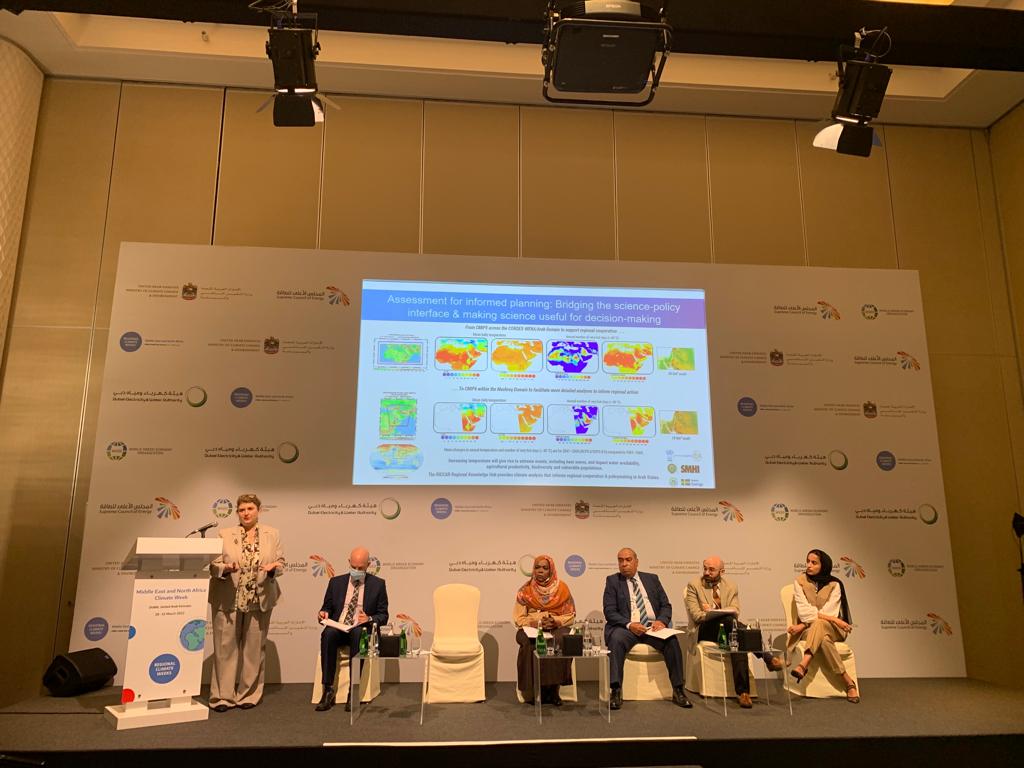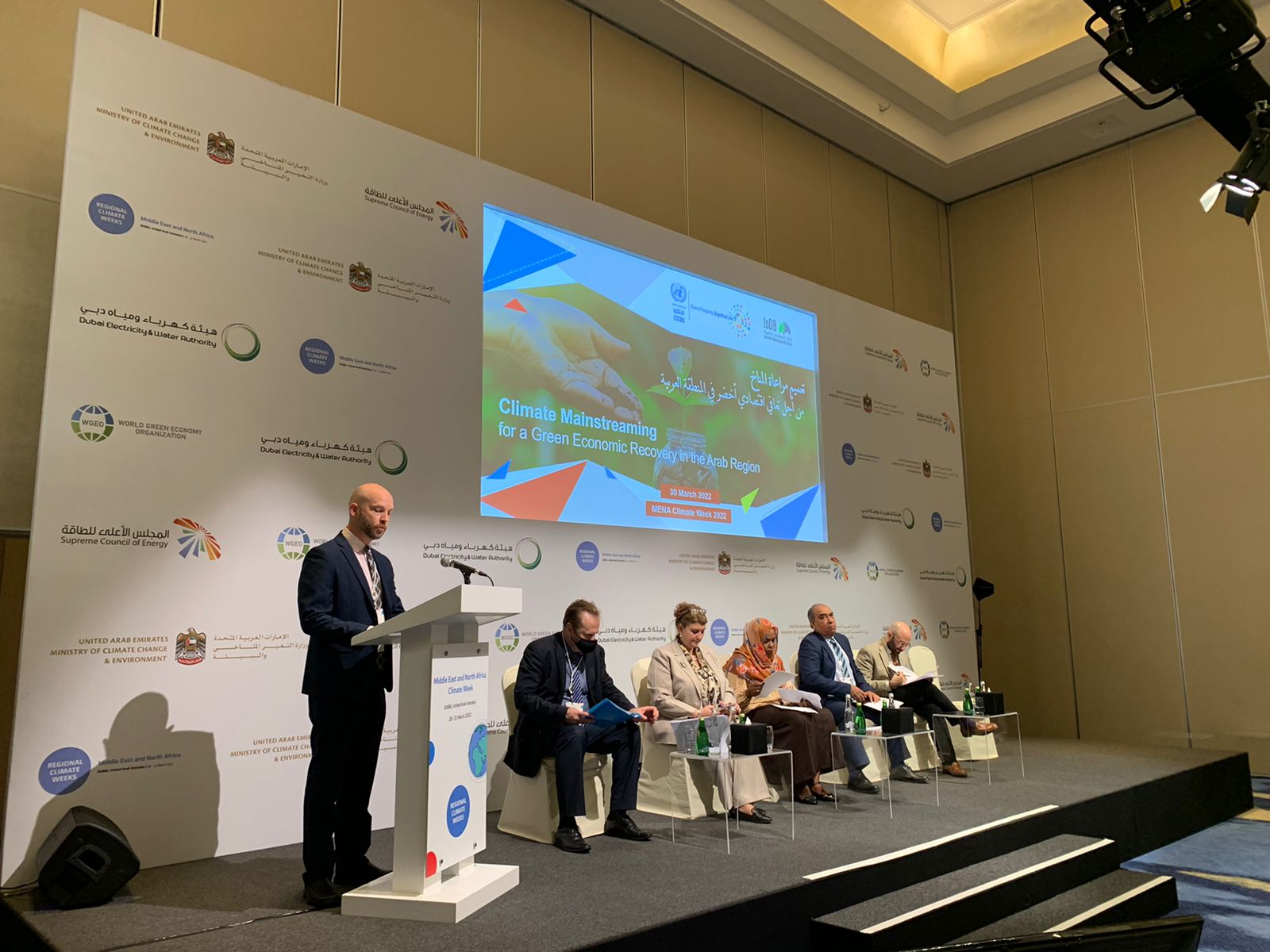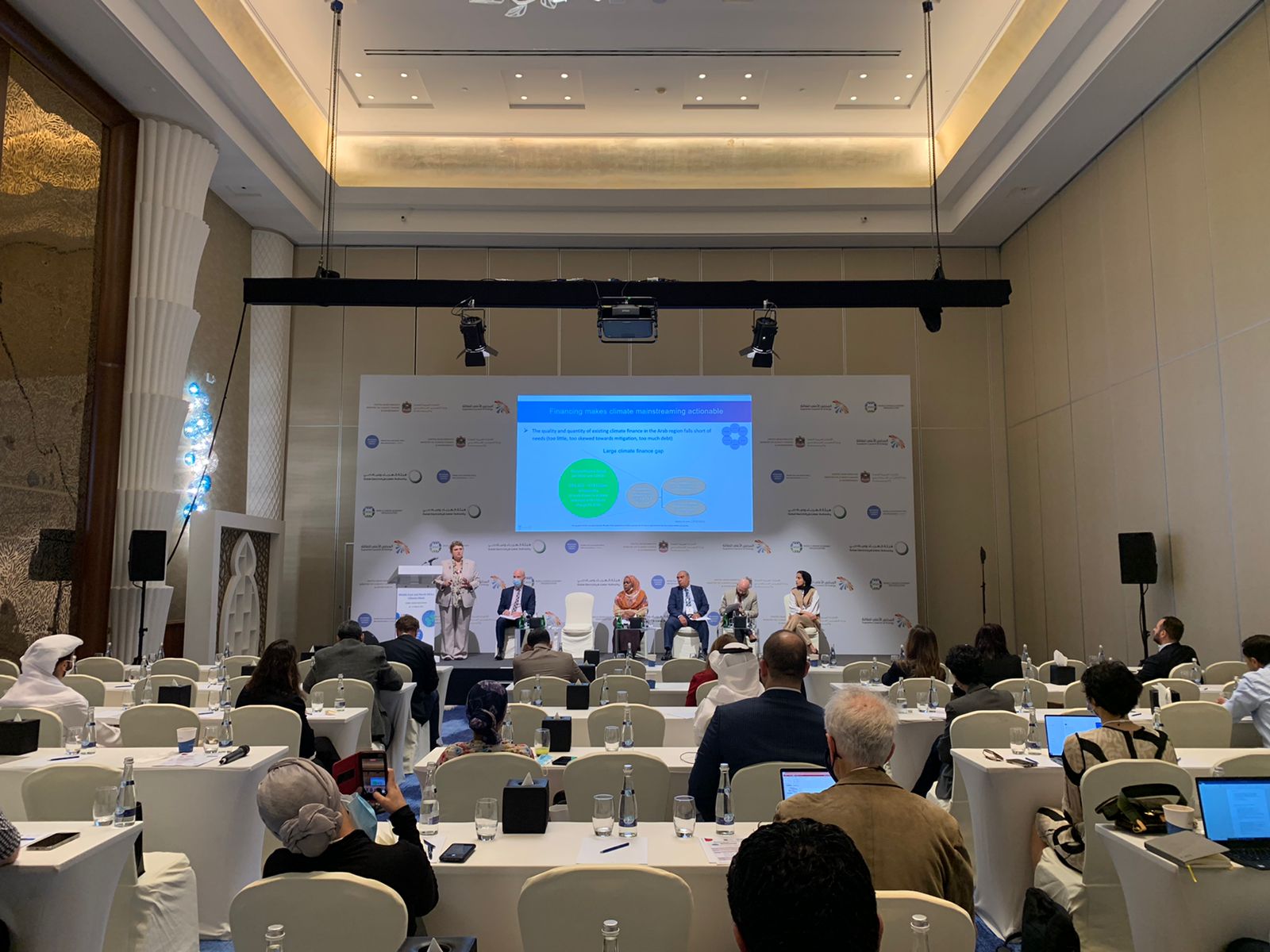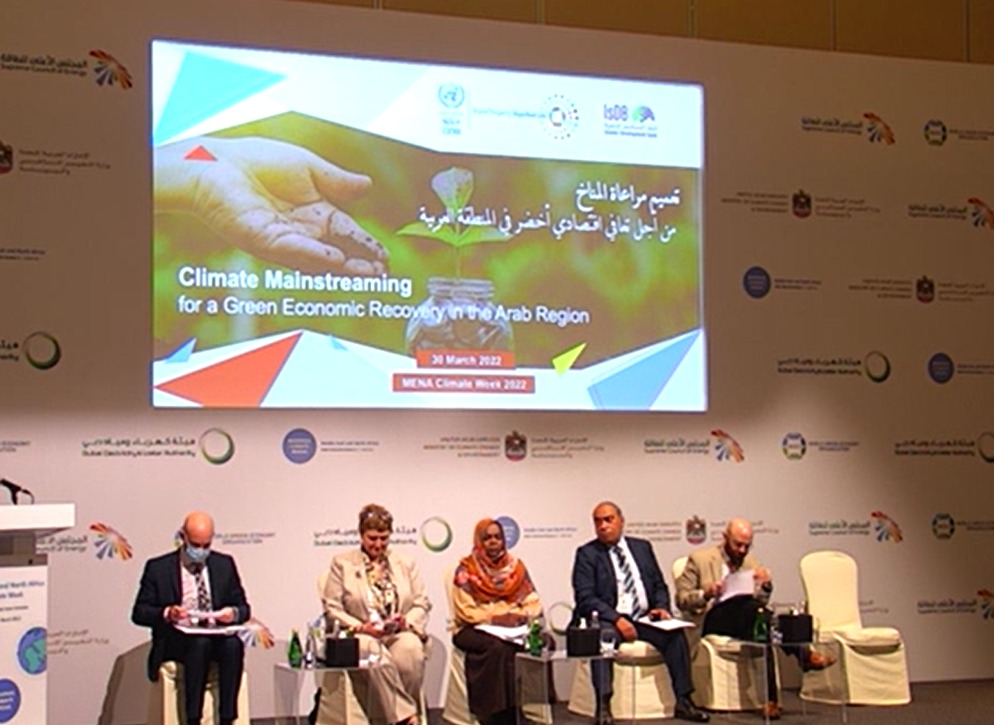In tandem with the MENA Climate Week 2022, ESCWA, in partnership with the Islamic Development Bank (IsDB) is organizing a session on climate mainstreaming for green economic recovery in the Arab region. Discussions during this session cover various avenues for mainstreaming climate change in development planning and strategic sectors through a holistic approach that aims at promoting a green economic recovery.
The event includes exchange on assessment tools, integrated planning instruments, financing options and interventions for ensuring natural resource sustainability under a changing climate. It promotes a science-based approach that examines climate change impacts on the water and agricultural sectors and the implications for socio-economic vulnerability in the region.
The event gathers senior officials from ministries of water, agriculture, energy, transport, industry, environment and planning in Arab countries, and specialized regional organizations and development experts.




